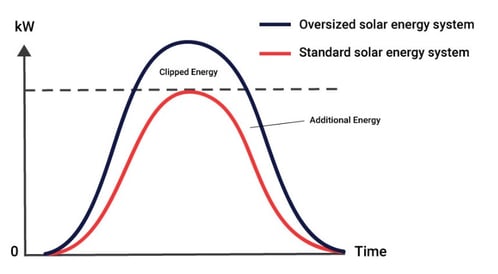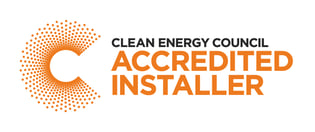Buying solar can be confusing! Here are some answers to some of our most frequently asked questions about solar, the industry, and more!
How much can I save with solar?
Your actual savings will depend on how much energy you use, when you use it, whether and the system's size and components that you choose.
GEM Energy consultants will produce a free Clean Energy Council compliant savings and performance report for you to see how much you will save with your chosen system.
What sized system should I get?
Bigger is usually better, but we’ll help you choose.
In 2012 the average system size was under 3kW. In 2015 it rose to around 6.6kW Now, the average system size is closer to 9kW.
The size of a system will depend on the specifications of your property and your energy usage, but everyone is using more energy, and… “no one ever said they wish they got a small solar system!”
Can I finance solar?
Yes!
We have a range of finance options available including Humm, Zip Money & Bright for no interest options, and Plenti Community First. For more information Is a battery right for me?
Yes and no.
Batteries aren’t for everyone yet, but with some exciting developments.
Sometimes they stack up on a ROI assessment, but most often it’s for the other benefits like a few we mention below:
Values of a battery include:
- Backup power for your home
- Further savings on energy
- Use more clean energy and reduce coal consumption
- Future-proofing for electric vehicles
- Ability to join a Virtual Power Plant (VPP) Network
If you want to be at the forefront of renewable energy technologies for your home, ask us about a battery solution.
How much should a solar system cost?
A rule of thumb to get a great quality system is $1,000 per kW.
This is simply what it takes to get good quality components, book installers for a sufficient amount of time to carefully install the system, and cover operating costs.
You may see some variance above or below that figure, but you should be very careful if you see anything in the under $3,500 range for a 6.6kW system – they have to be cutting corners somewhere and you’ll end up paying for it.
Why do we oversize inverters?
Inverters are more efficient when they operate when the sun is at its peak.
Oversizing the inverter means that the inverter reaches maximum capacity sooner and lasts for longer. So you get the absolute most out of your inverter. It also yields more energy in low-light conditions.
The simple calculation our consultants use when designing your system is:
Solar inverter output capacity multiplied by 1.33 or 33%.

How long will my installation take?
A general rule of thumb is a 6.6kW system installation on a tin roof will take roughly a day.
The time of your installation will depend on the system size, the type of roof, and the specifications of the property. Your consultant and project manager is with you every step of the way with regular updates for the installation and will have an estimated time of installation when you have received and are happy with your proposal.
What roof types does GEM Energy install on?
Most residential roofs in Australia are constructed out of tin or tile. Other materials such as clay tiles, metals, terracotta tile, and rubber are also suitable, and should not pose any issues. 1 or 2 storeys, we can install on. However, due to the strict structural regulations and the area being a cyclonic region, we are unable to install tiled rooves in the Northern Territory.
What does installation on a tiled roof look like?
We are able to install on Tile roofs! There can be a few obstacles that can often add extra costs. When installing solar panels on a tile roof, there is potential for cracking or breaking of the tiles from walking or drilling into the tiles. A good installer (like our installation teams here at GEM Energy) will ensure that you have some extra tiles on hand to replace any broken tiles. Have a watch through our tiled roof installation demonstration below!
Do I need to be home for my site inspection?
No, you don't necessarily need to be there for your site inspection. During your quote discussion, your consultant will advise you on your site inspection.
Do I need to be home for my installation?
Yes, you will need to be home on the day of your installation as a point of contact for our installers in the event that they need to access cabling in your roof, etc.
How do I set up online monitoring?
Depending on your brand of the inverter, your project manager will send you a link to download your online monitoring app. It is good to download this before your installation is complete to make setting up online monitoring easier. Click here for our online monitoring setup tutorials!
What is the online monitoring app for Sungrow inverters?
Sungrow - iSolarCloud (if you have a Sungrow inverter):
What is the online monitoring app for Fronius inverters?
What is the online monitoring app for Solaredge Inverters?
Do you use in-house installers?
Yes, we have an internal team of installers however as we do service right across the country, we do subcontract installers. All of these subcontractor installers are CEC Accredited and we maintain frequent auditing and monitoring to ensure all installations are of the highest quality. We also have a dedicated Subcontractor Manager who handles all of the onboarding, monitoring, and licenses.
Why are the panels being used, made in China?
The highest quality solar components on the market are manufactured in China. Panels that claim to be "Australian-made" still export most of the materials. They only assemble the panels in Australia. Canadian Solar panels, for example, are designed in Canada and manufactured in China. The GEM Energy team visited this site back in 2018 and have first-hand insight into the processes of the company. We have used these panels on many key commercial clients including Australia Zoo and the Brisbane Convention and Exhibition Centre.
Tindo is an Australia-made panel. Can I have these instead of China-made panels?
The Tindo panels are only assembled in Australia with most parts imported. They are also very expensive. You can get a better-performing panel for around the same price if you were interested in a more premium option. The SunPower Maxeons is a better-performing panel with full 25-year product and performance warranties.
What are "cow-boy" companies?
A “solar cowboy” company will ride into the market, sell a lot of incredibly cheap systems (often under $3,000 for 6kW) with products that are not designed or engineered to do the job long term. In most cases, you’re better off keeping the money in your back pocket. These products are often installed at high volume and by untrained workers – creating the perfect recipe for failure. The companies make almost no money on these sales and eventually end up with tax debts, supplier debts, unpaid wages, and super – so they simply close the doors. Simply put, they make their money then leave customers high and dry.
When choosing a solar retailer, among other things it is crucial to check that:
- They are a CEC Approved Retailer.
- They have been operating for many years.
- And that they have even more years of work in the pipeline.
What is a CEC Approved Retailer?
CEC Approved Retailer - The retailer is committed to responsible marketing and sale activities. All products and practices are required to follow the code of conduct to comply with Australian standards. When looking into a retailer, be sure to check that they are an Approved Solar Retailer. GEM Energy is CEC Approved!

What is a CEC Accredited Installer?
The installer is recognised to have undertaken the necessary training in order to design and install solar and battery systems. There is regular testing to ensure all installations are up to the code of conduct. GEM Energy only use CEC Accredited installers.

What is a CEC Member?
While a CEC Member is expected to uphold a member code of conduct, they are not associated with any consumer guarantees or compliance programs and membership alone does not determine the reliability of the retailer.

